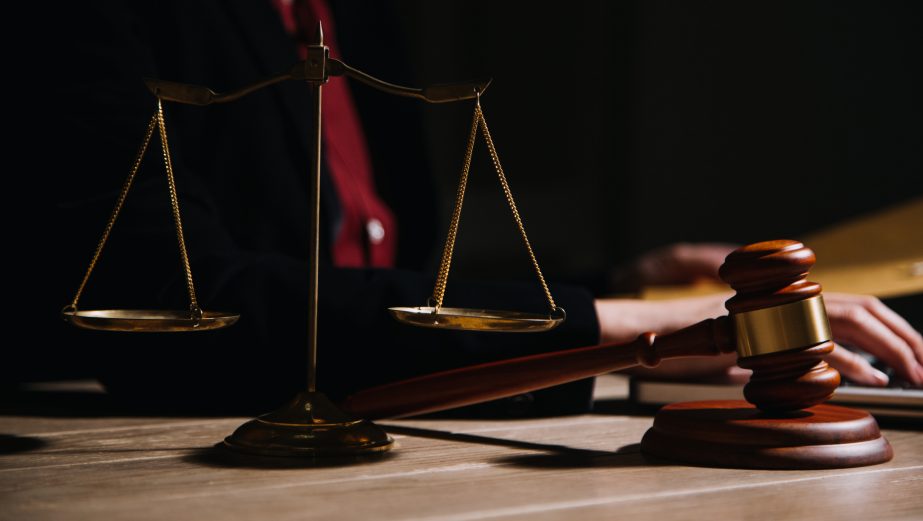Kalshi is attempting to move the state of Massachusetts’ lawsuit against it to a federal court, arguing that Congress intended for disputes over trading on federally registered contract markets to be settled exclusively by the federal judiciary.
On Friday, Massachusetts Attorney General Andrea Joy Campbell sued Kalshi in Suffolk Superior Court. In the complaint, the state argued that the prediction market is offering betting in Massachusetts without a license, and without complying with the state’s rules for sports betting licensees. Massachusetts is considered to have the toughest responsible gambling, advertising, and consumer protection regulations in the U.S.
The state is calling for a judge to “permanently enjoin [Kalshi] from engaging in sports wagering without a license.”
Monday, Kalshi moved to have the case heard before The U.S. District Court for the District of Massachusetts instead. Kalshi is registered with the federal Commodity Futures Trading Commission (CFTC) and operates under the Commodity Exchange Act (CEA), a federal law.
In other cases before federal courts, Kalshi has argued that the CEA supersedes state gambling laws, and that only the CFTC has jurisdiction over contracts offered by a registered exchange. It most likely believes a federal judge would be more receptive to the argument that federal law overrules state law.
Kalshi so far has brought lawsuits against three states, and has won preliminary injunctions in federal courts against the states of Nevada and New Jersey, as judges ruled it was likely to win on the merits in those cases, but it did not win one in its case against Maryland.
Kalshi says ‘complete preemption’ applies
Kalshi’s argument rests on the doctrine of “complete preemption,” which is one way in which a case can be moved from a state court to a federal one.
This doctrine applies when Congress has specifically set out a cause of action — that is, a system where parties can sue in federal court for violations of the law. Congress must also have intended this cause of action to be the only way to sue for breaches of the law in question.
Kalshi says that “this is the case here.”
“The CEA provides the CFTC with ‘exclusive jurisdiction’ over trading on DCMs [designated contract markets], including Kalshi’s exchange on which its event contracts are traded,” the filing reads.
It cited the First Circuit Court of Appeal’s opinion in Rhode Island vs Shell Oil Products, which said the CEA “supplies a federal cause of action to replace the state law claim.”
However on social media site X, Andrew Kim, a partner at Goodwin Law, wondered whether this cause of action was truly intended to prevent all other private claims.
The prediction market also invokes the “artful pleading” doctrine, arguing that Massachusetts simply omitted the federal aspects of the case in its initial complaint, in order to make it appear to be purely within a state court’s jurisdiction. Kalshi notes that the state’s complaint didn’t mention the CEA or CFTC rules, but says that it “offers extensive analysis of why” the state may be able to overcome the question of federal law superseding state law.
Case complicated by Robinhood’s filing
Speaking to InGame, Kim said the case is complicated by the fact that Robinhood filed a federal suit of its own on Monday, asking for an order to prevent the state from enforcing its laws against the trading app. Robinhood – which offers its users access to Kalshi contracts – was not a defendant in the lawsuit brought Friday, but it said “there is a real and imminent threat” it will be the subject of a similar suit.
Robinhood-v-Campbell-Massachusetts-Complaint-Sept-15-2025“On a number of levels, the Massachusetts cases are more technically complicated than any of the other prediction markets cases,” he said. “You now have a fight over whether the Massachusetts AG’s case against Kalshi should be heard in state or federal court.
“You have Robinhood going on offense, and Kalshi trying to link its case to Robinhood’s, in an effort to keep its own case in federal court. I suspect the Massachusetts AG will also try to raise questions about whether Robinhood should be able to file its suit at all.
Kim added that the case may not be resolved any time soon.
“From a procedural standpoint, this is all very messy, and a court will need time to untangle the different strings,” Kim said. “The Massachusetts AG’s motion for a preliminary injunction in the Kalshi case puts pressure on the court to act quickly; on the other hand, the AG waited this long to file suit, so the court may feel that there’s no true emergency.
“My gut tells me that the federal judge considering Kalshi’s case … is going to be focused on getting it right on jurisdiction and the merits, and will be less compelled by any argument by the parties to act immediately.”
New lawsuit flips the script
The Massachusetts case is the first time an attorney general has sued Kalshi in a state court, breaking from a previous trend of states sending cease-and-desist letters and Kalshi suing in federal court to block their enforcement.
A group of tribes in California were the first to put Kalshi on the defensive, suing both the prediction market and Robinhood in July and asking for an injunction to block Kalshi from offering what they call “illegal sports betting” on their reservations.
Kalshi’s cases against state are all at different stages. The decision to award an injunction in New Jersey was appealed by the state, taking the case to the Third Circuit Court of Appeals, where judges heard oral arguments from both Kalshi and the state last week. In Maryland, Kalshi appealed the decision not to grant an injunction. Kalshi’s sports event contracts remain available in Maryland as state authorities said they would pause enforcement of gambling laws against the prediction market until a decision is made on the appeal.
In Nevada, the initial decision on a preliminary injunction was not appealed to a higher court. Instead, Kalshi may have to release all of its communications with the CFTC after a judge ruled discovery was necessary in the lawsuit.





